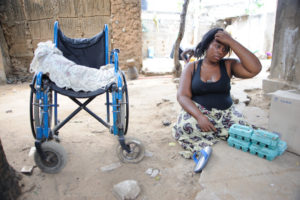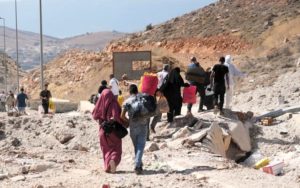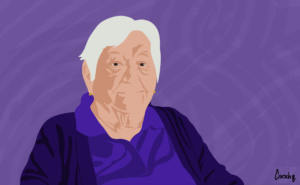Despite the urgency of Myanmar’s complex political, military, human rights crisis, international attention is waning. This article urges renewed international attention for the people of Myanmar after the military coup of February 2021.
I. Myanmar’s brief period of democracy
During the 2010s, Myanmar saw positive changes including attempts to bring to an end some of the longest standing insurgencies on the planet and increasing levels of democratization. In late 2011 and early 2012, the new civilian government embarked upon ceasefire negotiations with eighteen of the twenty-four ethnic insurgencies. In 2012, democracy activist Aung San Suu Kyi, head of the National League for Democracy (NLD), also won a series of by-elections which demonstrated the strength of her appeal and the support for the democratic movement. It was only in the elections of 2015, that the NLD won an absolute majority of seats in both chambers of the Burmese Parliament. On 15 March 2016, Htin Kyaw was elected as the first non-military president of the country since the Military coup of 1962. The results of the political consultations combined with progress on the ceasefires gave the population hope that Myanmar would finally find peace, democratize and develop economically, as it remains one of the poorest countries in the region.
Unfortunately, many of the hopes and promises that had seemed possible after the 2015 elections were never brought to fruition. The peace process stalled, economic reform stagnated and the reputation of the iconic democratic leader, Aung San Suu Kyi, suffered greatly following her endorsement of the anti-Rohingya genocidal narrative, culminating in her defense of the military position at the International Court of Justice ( ICJ).
Even though a significant number of ethnic controlled areas were denied the right to vote, nominally for security reasons, the general election on 8 November 2020, saw the National League for Democracy (NLD) winning 396 out of 476 seats in parliament, an even more significant margin of victory than in the 2015 election. The military’s proxy party, the Union Solidarity and Development Party, won only 33 seats.
Frustrated with the results of the November 2020 elections, the Senior General Min Aung Hlaing staged a coup. The Commander in Chief probably believed that the Tatmadaw (armed forces) could follow the old play book of oppression and military occupation that had worked in the late 1980s, early 1990s and even 2007. But he hadn’t counted on the fact that Myanmar then was a fundamentally different country. The people of Myanmar, and especially the young, had tasted the relative freedoms that came with the opening up of the country in 2011, and they were not prepared to give these freedoms back.
Almost immediately, the Tatmadaw, arrested Suu Kyi, insisting that the elections had been corrupt, and declared a state of emergency for one year. The young took the lead in instigating the revolt. The peaceful protests were led by a generation, who through the mastering of the technology of social media were able to mobilize as never before and give voice to frustrations and articulate hopes.
Politically and in response, the National Unity Government (NUG), which includes representatives of the NLD, formed and declared a “people’s defensive war,” calling on civilians across the country to rise against the regime. Spontaneously, though not necessarily in response to the NUG call, popular defense forces formed in many of the central Bamar dominated parts of the country. In parallel, dormant ethnic insurgencies re-emerged and joined those groups who had not accepted the peace process.
The coup was a massive miscalculation by the Senior General. Twenty-one months into the conflict, it is clear that the military has lost control of much of the country. And Myanmar is sliding quickly into becoming ASEAN’s first failed state. But the disassembling of the state is not the leading cause of a descent into anarchy so much as the refocusing of the economy on extractive activities and the growing strength of criminal economic networks. As a result, new dependencies are emerging with unaccountable and rogue centres of power. Life in Myanmar is rapidly being defined by corruption, criminality, involuntary movement of populations, sharp economic decline, and violence.
Human rights violations have been going on for decades, particularly against ethnic minorities, most notably Rohingya Muslims in the Rakhine region, many of whom fled to Bangladesh to escape atrocities in 2016 and 2017. Since the coup, the human rights situation has become increasingly desperate, and urgent action is required.
II. The situation has been deteriorating since the coup
Millions of people have been actively fighting back and protesting against the military, which has responded brutally, trying to eliminate resistance with bloody crackdowns on protestors. The country has descended into unrest. The junta terrorizes the population through arrests, torture, and arbitrary detention. They have muzzled freedom of expression through the nationwide internet shutdown and closing of independent news publications. On July 25, 2022, the military junta executed four human rights defendants (New York Times). in another attempt to send a signal to the population and the international community. In August 2022, a court decided that democratic leader Suu Kyi will stay in prison for another six years on top of her existing sentence of five years (The Guardian), demonstrating the junta’s determination to crush the democratic resistance. She still faces several other corruption charges as well as charges on electoral fraud and violating the official secrets act.
According to a recent report by Amnesty International, military assaults in the Eastern states Kayin and Kayah include war crimes and likely crimes against humanity. The military has carried out air strikes on resisting villages. On September 20, 2022, military strikes in the Sagaing region of Northern Myanmar killed at least 11 children after opening fire on a school (BBC). More than a million people have been forcibly displaced mainly because of the attacks directed against civilians conducted by the regime (UNHCR). Many are Rohingya refugees who were already persecuted long before the coup. There are concerns over their current living situations: living in camps in Myanmar or Bangladesh, they have almost no access to essential services, such as healthcare and education (Amnesty International).
There is also evidence of sexual violence against women and girls and reports of rape. Independent Investigative Mechanism for Myanmar (IIMM) was established by the Human Rights Council in September 2018. Its role is to collect and analyse information on crimes committed in Myanmar and to facilitate justice and accountability efforts. The organisation indicates in its Annual Report, that sexual and gender-based crimes and crimes against children have been perpetrated by members of the security forces and armed groups.
In addition to the repression led by the government, Myanmar is facing a humanitarian emergency, a direct result of the political crisis. The dire economic situation does not allow the population to have its basic needs met. The healthcare system has virtually collapsed and cannot provide an efficient response to the COVID pandemic. As health workers joined the civil disobedience movement and the third wave of Covid-19 hit the country, the government multiplied attacks on healthcare facilities, undermined the COVID-19 response by confiscating personal protective equipment (Amnesty International), and severely limited oxygen supplies in Chin, Kayin, and Yangon for use by the military. Since the beginning of the political crisis, the prices of goods have surged: the average retail price of a basic food basket in February 2022 was up by 27 percent compared to a year before (World Food Program), leaving more than 13.2 million people food-insecure. The right to education is also not respected. Almost 12 million children and young people have no access to formal education. Due to COVID-19-related school closures, armed conflict, and the actions of the military authorities, school enrolment dropped by up to 80 percent in the last two years, according to Save the Children.
As of now, the state is highly fragmented. The junta has lost its grip over most of the country, it has ‘stable’ control of only 72 of the country’s 330 townships. The inability to consolidate control over large areas of the country has prompted the junta to adopt more radical methods and escalate the violence. The Ethnic Armed Groups do not have a common program as their interests diverge. Some have joined the resistance against the government, even by training protesters. However, despite having a shared enemy, many EAOs do not trust the Bamar-dominated NUG. Most of them have felt disappointed by Suu Kyi’s government and are not ready to get behind the NUG. In these circumstances, it seems that neither the military nor the NUG will be able to take control of the country.
III. What has been done?
So far, Western countries have applied economic sanctions on Myanmar that aim to limit the regime’s ability to collect revenue from sectors such as mining, forestry, and, most recently, oil and gas. However, the UK, the U.S. and the EU have continued to import timber and have not engaged in meaningful diplomatic efforts to negotiate with the junta. The sanctions are also limited in scope. They have not had a tangible impact on the regime’s stability. Such efforts have also been undermined by Russia, which has strengthened its relations with the junta in Myanmar since the coup.
During a special summit in April 2021 in Jakarta, which coup leader Senior General Min Aung Hlaing attended, ASEAN, representing the region’s leaders, reached a five-point consensus. It is aimed at providing urgent humanitarian aid rather than addressing the structural issues which may have caused the crisis. It includes the immediate cessation of violence, the delivery of humanitarian aid, and the appointment of an ASEAN envoy to facilitate dialogue among all parties concerned. Min Aung Hlaing signed the consensus and agreed to it but failed to implement any measures to work towards it. As a result of the regime’s lack of cooperation, ASEAN leaders decided to exclude Min Aung Hlaing from their 26 October summit. Despite gaining initial momentum, the consensus has had little impact on the crisis in Myanmar.
In December 2021, Dr. Noeleen Heyzer was appointed the UN Secretary-General’s Special Envoy for Myanmar. Since then, she has been vocal about the necessity to address the crisis with a coordinated and comprehensive response and to engage with all the stakeholders in the country. Helping the return of displaced Rohingya and ethnic minorities is also at the heart of her mandate. In August 2022, she travelled to the country for the first time since taking up her appointment and met the junta chief, urging him to end violence against the civilian population and to release political prisoners. She also has called for renewed international attention and increased support for the Rohingya refugees. A week later, she met with Bangladeshi officials amid growing pressure regarding the repatriation of Rohingya refugees and visited Rohingya camps where no work is available and the living conditions are poor.
IV. “What next?”
On the political aspect, the different external stakeholders could play positive roles and focus on conflict-resolution for Myanmar. So far, the efforts of ASEAN have proven unable to restore peace in Myanmar and alleviate the citizens’ plight in any meaningful way. However, the new Indonesian chairmanship of ASEAN in 2023 could take a more proactive approach towards Myanmar. Indonesia has been one of the most vocal Asian countries about the conflict, conducting diplomatic “shuttles” and visiting neighboring countries such as Brunei, Singapore and Thailand to get their approval on a democratic transition for Myanmar. This new chairmanship could break with ASEAN’s tradition of non-interference and engage mitigation efforts with all parties involved.
The UN Security Council has expressed its support for the ASEAN process, but this, on its own, is not enough. Activists from Myanmar have been calling for a Security Council resolution on the human rights violations occurring in the country. In May of 2022, the last attempt for a resolution expressing concern about the country’s humanitarian crisis, led by the UK, was vetoed by China and Russia whose delegations objected to the wording of the text. However, a recent initiative led by Liechtenstein, has led to the changing of the veto rules for the permanent members of the Security Council and increased the cost of using it. If a member decides to veto a resolution it must explain and justify its decision to the General Assembly (GA). While this does not mean that members can no longer use their veto, the hope is that if the GA hears an explanation that sounds implausible or inconsistent with existing international norms, this may encourage groups of countries to get together in the GA and put forward a resolution which the GA would vote on, requesting, for example, the Secretary-General to take some action. This change could lead to more action taken for human rights protection in Myanmar as, if Security Council members decide to use their veto again, they will be put under the spotlight.
Finally, a comprehensive conflict-resolution endeavor would require the cooperation or at least consent of China. As Myanmar’s neighbor and most significant trade partner, China may be able to engage in dialogue with the junta. While China’s human rights record suggests that the humanitarian crisis may not be its priority, the desire to protect its investments in the country and the fear of a destabilized Southern border involving refugee flows, and security concerns, could be motivations for attempts to bring peace to Myanmar. China may also have more leverage over the military than Western countries and ASEAN.
Regarding the distribution of much-needed humanitarian aid, and the search for effective ways to cooperate with local groups, NGOs who have experience in doing this kind of work could play the intermediary between local government, civil society groups, and donor government, funding partners. Apart from immediate aid, long-term economic support will be required alongside assistance to civil society.
Accountability should also be at the forefront of any endeavors in Myanmar. In a virtual conference given at The Georgetown Institute for Women Peace and Security, focusing on the escalating violence on women and girls under the military junta, several activists asked for the situation in Myanmar to be referred to the International Court of Justice and the International Criminal Court. They urged for victim-led Independent Investigative Mechanism and more regional accountability under the UN. While the humanitarian situation is urgent, accountability and the relief it could bring to the people fighting in Myanmar must not be neglected.
As the world is focused on Ukraine, the cost-of-living crisis, and climate change, international attention on Myanmar has waned. But the people in Myanmar and those who have been displaced to neighboring countries are still suffering the terrible consequences of the coup. Their voices need to be heard.
Florence Duchet is a graduate in political science and Mandarin from University College London. Her areas of interest include Human Rights Law and Chinese Politics.
The author would like to thank Charles Petrie for valuable comments on drafts of this article. The content is the author’s responsibility alone and does not necessarily reflect the views of United Against Inhumanity or any of its members.











